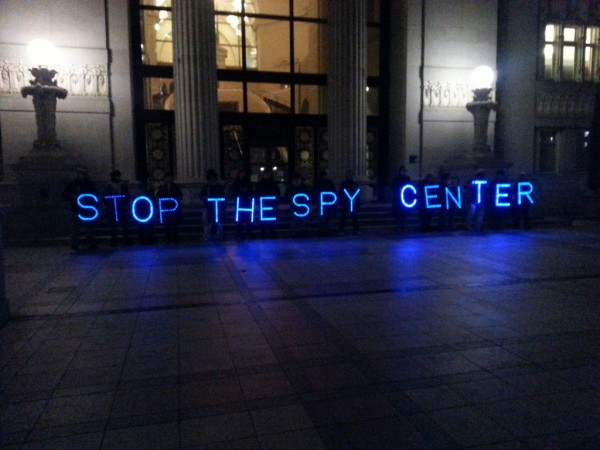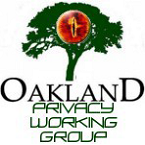By Oakland Privacy Working Group
With its origins in 1981, the New York City-based Left Forum recently completed its three day run from May 20-22, 2016, cementing its claim to be the nation’s premier progressive conference with some 5000 attendees. Assembled were a cross-section of activists, intellectuals, public interest organizations, and academics.
 A panel from the Oakland Privacy Working Group (“OPWG”) was invited to share their nationally recognized success at curtailing the advancing surveillance state. Their sustained advocacy led to the dramatic scale-back of a planned surveillance hub with the Orwellian-sounding name Domain Awareness Center (“DAC”), and creation of the nation’s first citizen’s advisory committee with responsibility for drafting privacy policies to govern surveillance equipment. Their policy work has now spread throughout the greater Bay Area, as multiple City Councils and County Boards of Supervisors have moved to adopt similar privacy policies.
A panel from the Oakland Privacy Working Group (“OPWG”) was invited to share their nationally recognized success at curtailing the advancing surveillance state. Their sustained advocacy led to the dramatic scale-back of a planned surveillance hub with the Orwellian-sounding name Domain Awareness Center (“DAC”), and creation of the nation’s first citizen’s advisory committee with responsibility for drafting privacy policies to govern surveillance equipment. Their policy work has now spread throughout the greater Bay Area, as multiple City Councils and County Boards of Supervisors have moved to adopt similar privacy policies.
The panel was titled “The Rise of Big Surveillance; How Oakland Pushed Back and Won!”, and was led by a member of Occupy Oakland and original member of OPWG.
The panel included journalist Ali Winston, who first broke the story of the DAC in the summer of 2013 as Edward Snowden’s revelations hit the front page. The DAC was to be a citywide surveillance system, which at full-scope was envisioned to have facial recognition software, automated license plate readers, ShotSpotter, 700+ cameras throughout the City and its public schools and housing, 300 terabytes of storage, and unrestricted data sharing with federal agencies.
Prolific public record requester and researcher Joshua Smith, also of Occupy Oakland and a co-founder of OPWG, demonstrated to the audience his methodology for submitting FOIA requests and how he helped raise awareness as to the true intent of the DAC. When the DAC first appeared before the Oakland City Council, Josh was the first public speaker, asking a seemingly simple question: “Where is your privacy policy?” The silence was deafening, as the City had failed to even consider the impact to privacy such a surveillance system could have.
OPWG member Brian Hofer, chair of Oakland’s privacy advisory committee, and the Electronic Frontier Foundation’s Shahid Buttar tag-teamed their way through the policy work specifics that are leading to substantive changes in how local law enforcement will use surveillance equipment, and how the greater transparency and reporting metrics will change the dynamic surrounding its use.
Shahid’s east-coast work as the former Executive Director of the Bill of Rights Defense Committee came in handy as the New York audience asked for local resources in a robust question and answer session, and New York native Ali Winston chimed in as well. New York is way behind California at both the local and state level in addressing concerns regarding use of surveillance equipment; with inspiration and information from the OPWG’s presentation, that might begin to change.
 OPWG also presented its work locally at RightsCon in San Francisco in April. It’s latest success is raising objections to and (at least temporarily) stopping a proposed Automatic License Plate Reading System from being installed by BART police, and proposing that a BART system-wide privacy policy be implemented before any further such systems are deployed.
OPWG also presented its work locally at RightsCon in San Francisco in April. It’s latest success is raising objections to and (at least temporarily) stopping a proposed Automatic License Plate Reading System from being installed by BART police, and proposing that a BART system-wide privacy policy be implemented before any further such systems are deployed.
OPWG’s next meeting is on July 15th, 6:30 PM, at the OMNI Commons. All are welcome.

Comments are closed.